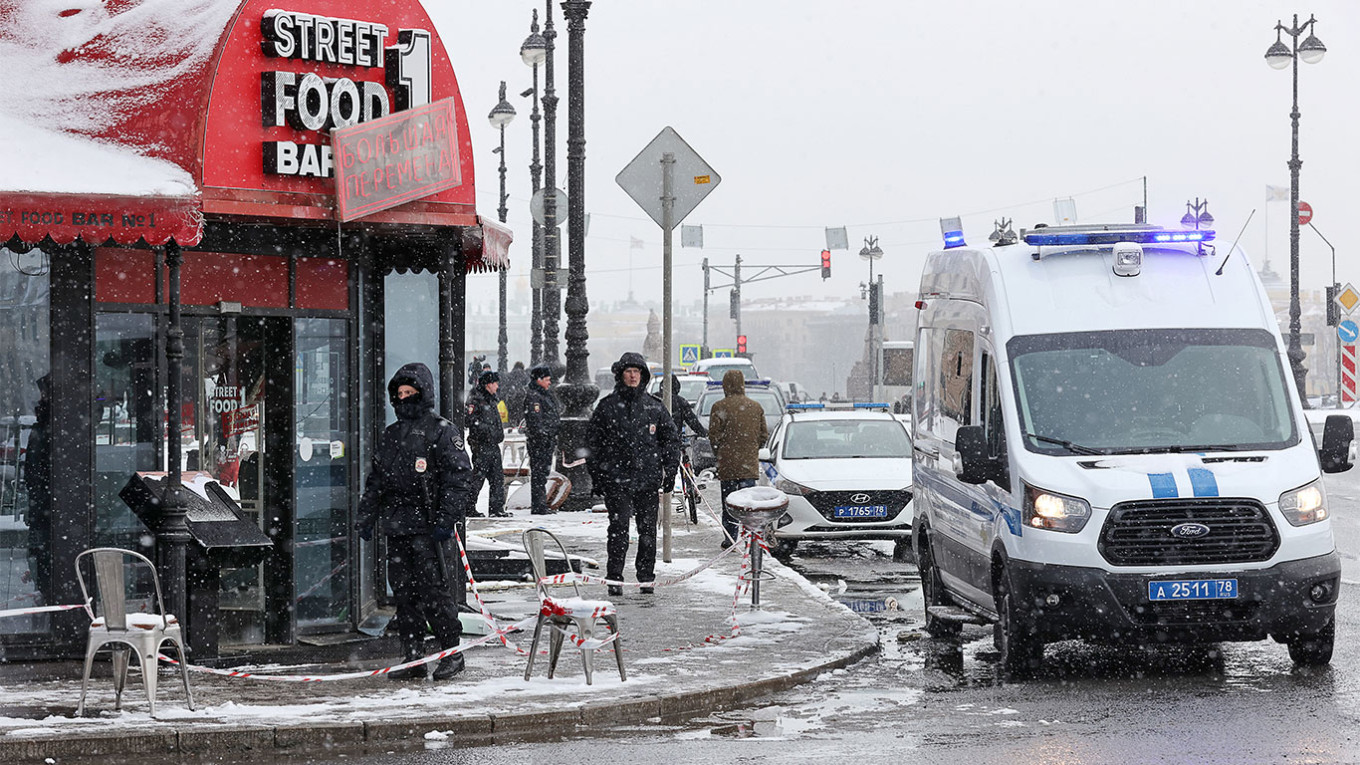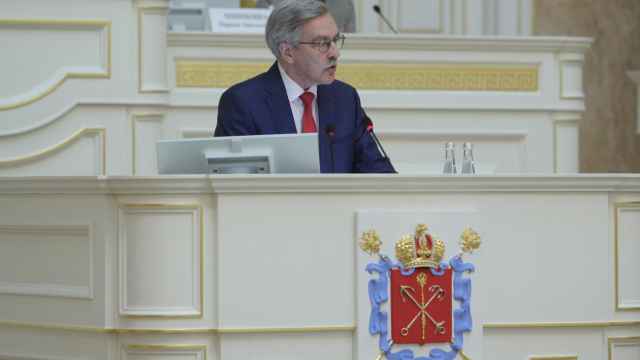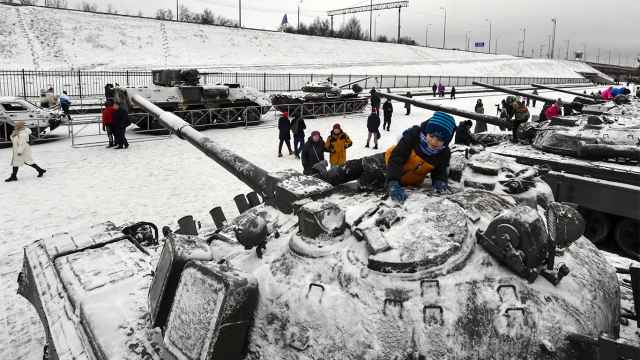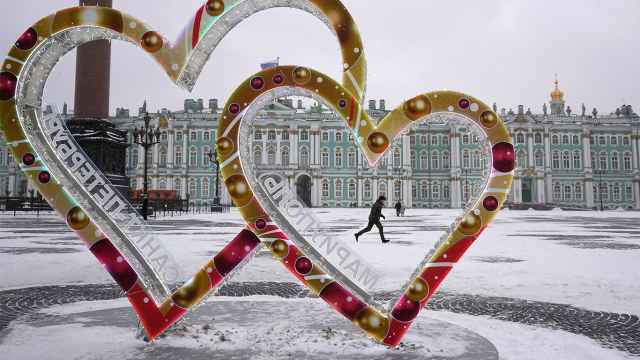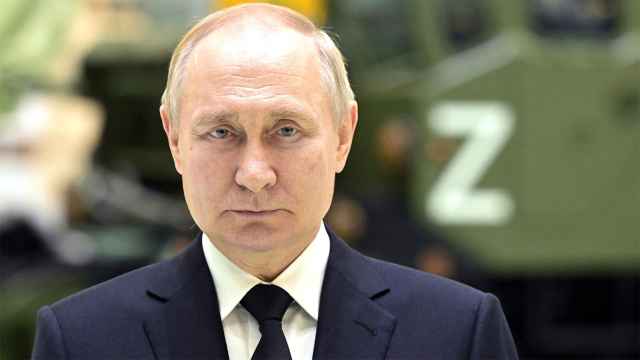The Kremlin on Monday blamed Ukraine for the bomb blast in St. Petersburg that killed a leading military blogger and injured dozens of others, while Kyiv denied involvement.
Military correspondent Vladlen Tatarsky, 40, whose real name was Maxim Fomin, died Sunday and 32 others were wounded when an explosion ripped through a cafe in the center of Russia’s second-largest city.
Russia's Investigative Committee said Monday that a St. Petersburg woman, 26-year-old Daria Trepova, had been detained in connection with Tatarsky’s death.
“Russia is up against the Kyiv regime. This is the regime that supports terrorist actions,” President Vladimir Putin’s spokesman Dmitry Peskov told reporters during a daily briefing.
“This is the regime that is quite possibly behind the murder of Fomin,” Peskov said.
Peskov's comments came after Russia’s Anti-Terrorist Committee (NAC) claimed that the attack was orchestrated by Ukraine’s intelligence services.
The NAC said that Kyiv had allegedly “recruited” Trepova as an “active supporter” of jailed Kremlin opponent Alexei Navalny and his political network, which is banned as “extremist” in Russia.
The Interior Ministry published footage of an interrogation of the suspect it identified as Trepova.
“I brought the statue that exploded there,” the woman can be seen saying in the video.
Trepova and her husband have reportedly claimed that she was used as an unwitting actor and hadn't known that the figurine contained explosives.
St. Petersburg-based media posted footage Monday showing a makeshift memorial outside the crime scene.
The state-run TASS news agency quoted a law enforcement source as saying the blast was "caused by an improvised explosive device hidden inside a statue given to Tatarsky as a gift."
A video showed Tatarsky placing the statue on a table next to him, with eyewitnesses saying the bomb detonated five minutes later.
Russia's Foreign Ministry paid tribute to Tatarsky on Sunday, saying he was among the "defenders of the truth" and lashing out at Western governments for failing to react to the attack.
"Russian journalists constantly feel the threat of reprisals from the Kyiv regime," spokeswoman Maria Zakharova said on Telegram.
Ukrainian presidential adviser Mykhailo Podolyak called the St. Petersburg cafe bomb blast an act of "domestic terrorism."
Wagner mercenary group founder Yevgeny Prigozhin, who said he had rented out his cafe where the deadly explosion occurred to a pro-war group called Cyber Front Z, ruled out Ukraine's role in the attack.
“I wouldn’t blame the Kyiv regime for these actions. I think that it's the actions of a group of radicals who are unlikely government-related,” Prigozhin said through his press service.
Russia's Investigative Committee opened a criminal murder case over the incident, but later reclassified it to a terrorism case.
Tatarsky came from the Donetsk region in eastern Ukraine, which Russia claims to have annexed and which is currently mostly controlled by Russian troops.
The fervent supporter of Russia's military campaign in Ukraine has more than half a million followers on the Telegram messaging app.
Tatarsky became known to a wider audience after vowing to "kill everyone, rob everyone we need to" in a video from a Kremlin ceremony proclaiming Russia's annexation of four partially held Ukrainian regions in September 2022. The move was rejected by most of the international community as illegal.
AFP contributed reporting.
A Message from The Moscow Times:
Dear readers,
We are facing unprecedented challenges. Russia's Prosecutor General's Office has designated The Moscow Times as an "undesirable" organization, criminalizing our work and putting our staff at risk of prosecution. This follows our earlier unjust labeling as a "foreign agent."
These actions are direct attempts to silence independent journalism in Russia. The authorities claim our work "discredits the decisions of the Russian leadership." We see things differently: we strive to provide accurate, unbiased reporting on Russia.
We, the journalists of The Moscow Times, refuse to be silenced. But to continue our work, we need your help.
Your support, no matter how small, makes a world of difference. If you can, please support us monthly starting from just $2. It's quick to set up, and every contribution makes a significant impact.
By supporting The Moscow Times, you're defending open, independent journalism in the face of repression. Thank you for standing with us.
Remind me later.


